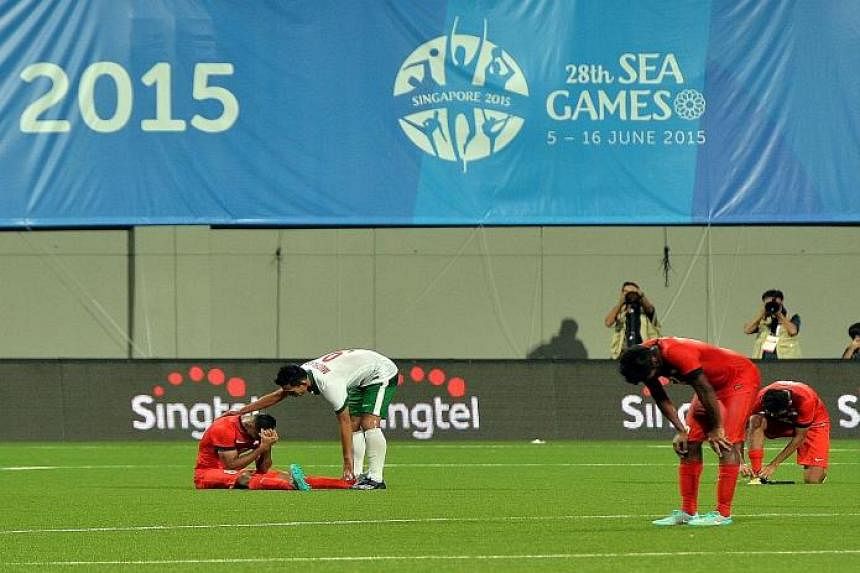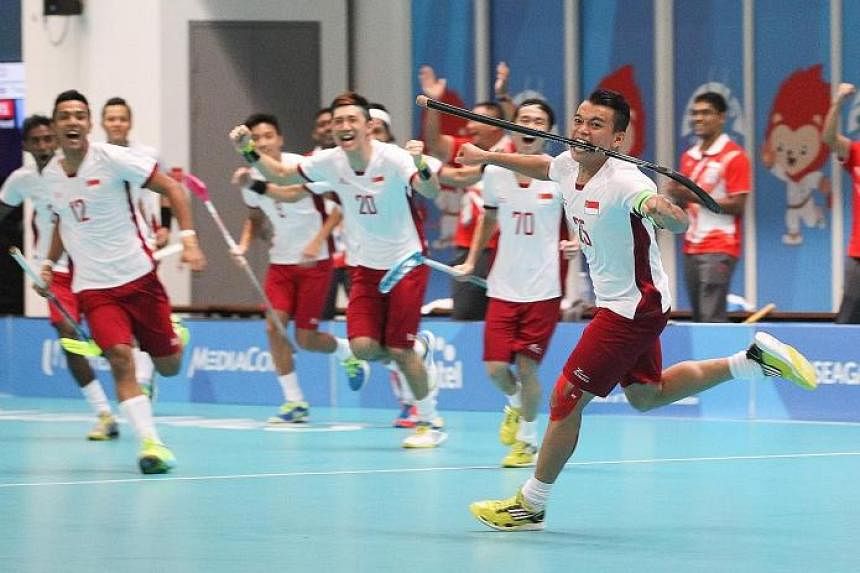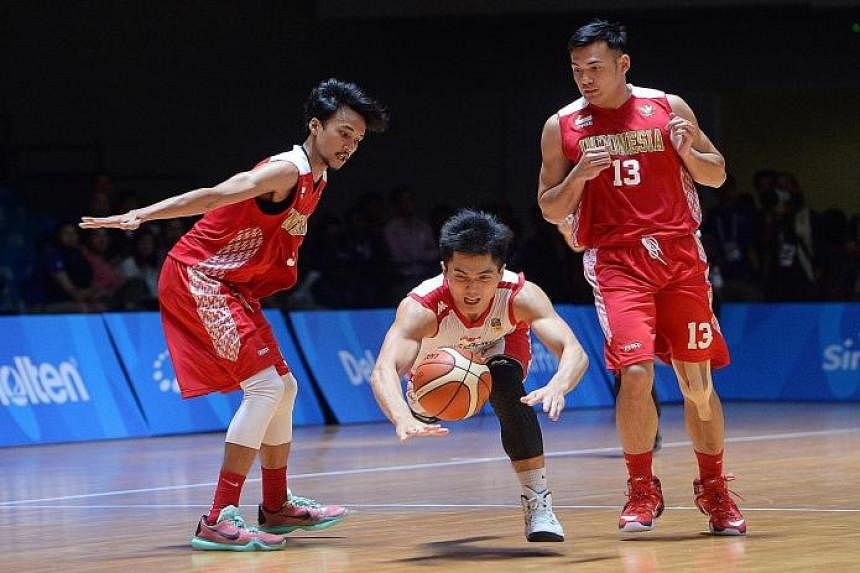IT IS 10.30am this Monday morning and people should be at work. Timor Leste are playing Myanmar in basketball and LeBron v Curry this is not. These short men can't dunk but on a hardwood floor their sneakers produce a swift and squeaking symphony. They are playing for eighth place but with unforgiving intensity. Intangible pride, and I see this every day, is as valuable as real medal.
Almost 400 people are watching and Singapore is surprising me with its fidelity to these Games. I go to volleyball another morning, Indonesia v Malaysia, and again people are huddled and hollering. It's as if there is a spirit to these Games that has briefly liberated a nation.
But let's not get carried away. At basketball when I asked to interview Nila, a fine dancer for an overweight lion, I was told this requires permission from higher authorities. Nila is a mascot, unlikely to divulge national secrets, but bureaucracy is unbeatable.
After four Olympics and four Asian Games I attended my first SEA Games and it was divine. It was moving to see a boy at hockey reach out to touch a Singapore player's silver medal. Maybe next day he bought a stick. It was revealing to see the ferocity of Vietnam's Nguyen Thi Anh Vien, who learnt to swim in a canal and wept after she won one of her eight golds. "I cried because I had made several mistakes during the competition." No critic is harsher than the athlete herself.
These Games were a triumph not because the website was efficient, the events slickly run and our athletes obediently won medals. No, these Games were memorable because they found the quality that underpins the best sport: They had heart.
For 19 competition days, in a sports world infatuated with transfer fees and rich lists, no one talked money. No grand financial reward awaited the ladies of Singapore and Thailand as they jousted for water polo gold and yet how both wept when it was over.
Of course we want to see sophisticated sport, but we don't need Messi or Djokovic to appreciate athletes at play. The SEA Games may be a smaller medal but for some athletes it is the biggest prize. The wider world may not talk about them but to their world they mean something.
Intensity comes not from size of talent but volume of effort. Everyone was playing for something: Coach, mother, nation, last chances. Amid the pictures in my head, one image persists. Of a badminton doubles pair on the final point of a match, both fallen to the ground, down and defeated. Sport heartfelt and yet heartless.
Athletes strove to take medals from each other yet stopped to offer decency on the way. A Malaysian hockey player cramped and a Singaporean went to his aid. A Timor Leste basketballer fell and a Myanmar player assisted him onto a stretcher. They were here to break each other's hearts but within the rules of play and conduct.
Goodwill hovered across these Games but imperfection is never far away in sport. Even from spectators. The hockey crowd vibrated with a lovely devotion, yet booing the Malaysians during the shoot-out was an unseemly finish. Discourtesy was rare, yet if we are demanding of athletes then equally we must be of ourselves.
Athletes wear mockery with stoicism and a spirit that shames us. When a video went viral of Filipino John David Pahoyo's botched dive in the 3m springboard which earned him a zero, he posted a few comments himself.
He said he "laughed at myself after I did this dive" but said it "was not the first time I failed a dive and I was not the first one who did so". A kid, just 17, was telling us all to have a heart.
Pahoyo praised his audience, saying "great crowd, great people" and he was right, for a Singapore Games was made by Singaporeans. They did not just come, they participated, they had fun. On Sunday outside the National Stadium, where activities had been set up for fans, a cloudy day was illuminated by a citizenry at play. Sport looked like it should, not a business but a carnival.
Strangers who never speak on a train now found common ground. Not love merely for nation but for sport itself. Singaporeans, whose relationship with sport is via television, now took a train into the outdoors on a voyage of cheering and singing discovery.
Fans brought to these Games a vitality, a life, yet these Games also unspooled in the shadow of death. Unforgotten always were the pupils and teachers from Tanjong Katong Primary School who died on Mount Kinabalu.
Of all people, athletes appreciate the idea of being given a chance and now it had been stolen from those even younger than them. And so they went, footballer and netballers and canoeists, to the school to grieve with their community. After victory one night, Joseph Schooling pointed upwards, not in victory but in honour of those he had swum for.
We have talked all week of medals and more than 1,000 have been won. Some nations have led the table and some have trailed but we should all be grateful for the opportunity to play at all. In the wake of a terrible tragedy, we must never forget how to distinguish between defeat and loss.




